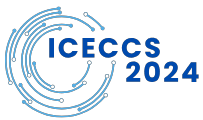Keynote Speakers

Constantine Dovrolis
Professor and Director of CaSToRC – The Cyprus Institute
Title: Emergence and evolution of hierarchical structure in complex systems
Abstract: It is well known that many complex systems, both in technology and nature, exhibit hierarchical modularity: simple and general modules, each of them providing a certain function, are used within more complex modules that perform more sophisticated functions. This is the case for instance with protocol stacks in computer networking. What is not well understood however is how this hierarchical structure (which is fundamentally a network property) emerges, and how it evolves over time. We propose a modeling framework, called Evo-Lexis, that provides insight to some fundamental questions about evolving hierarchical systems. We show that deep hierarchies emerge when the population of top-layer modules evolves through tinkering and mutation. Strong selection on the cost of new top-layer modules results in reuse of more complex (longer) nodes in an optimized hierarchy. The bias towards reuse of complex nodes results in an “hourglass architecture” (i.e., few intermediate nodes that cover almost all source–target paths). With such bias, the core nodes are conserved for relatively long time periods although still being vulnerable to major transitions and punctuated equilibria. Finally, we analyze the differences in terms of cost and structure between incrementally designed hierarchies and the corresponding “clean-slate” hierarchies which result when the system is designed from scratch after a change
Bio Dr. Constantine Dovrolis is the Director of the center for Computational Science and Technology (CaSToRC) at The Cyprus Institute (CyI) as of 1/1/2023. He is also a Professor at the School of Computer Science at the Georgia Institute of Technology (Georgia Tech). He is a graduate of the Technical University of Crete (Engr.Dipl. 1995), University of Rochester (M.S. 1996), and University of Wisconsin-Madison (Ph.D. 2000).
His research is highly inter-disciplinary, combining Network Theory, Data Mining and Machine Learning. Together with his collaborators and students, they have published in a wide range of scientific disciplines, including climate science, biology, and neuroscience. More recently, his group has been focusing on neuro-inspired architectures for machine learning based on what is currently known about the structure and function of brain networks.Read More

Christos Panayiotou
University of Cyprus
Title: Intelligent Transportation Systems: A Large-Scale and Complex Cyber-physical System
Abstract: Transportation systems have always been a complex system with many agents (vehicles) interacting on the road network. Historically, a huge problem of these systems has been congestion with all its adverse effects: waste of time and energy, green-house emissions, accidents, and frustration. The emergence of autonomous and connected vehicles promises to solve these problems, however, they cannot solve the problem unless there is also paradigm shift from “selfish” driving to a more “social” driving. During this talk, we will address some of the problems associated with congestion and present innovative solution approaches that are based on route reservation architecture aimed not only at alleviating congestion but also at enhancing the overall efficiency of the road network in terms of the average time vehicles spend within it.
Bio: Christos Panayiotou is a Professor with the Electrical and Computer Engineering (ECE) Department at the University of Cyprus (UCY). He is also the Deputy Director of the KIOS Research and Innovation Center of Excellence for which he is also a founding member. Christos has received a B.Sc. and a Ph.D. degree in Electrical and Computer Engineering from the University of Massachusetts at Amherst, in 1994 and 1999 respectively. He also received an MBA from the Isenberg School of Management, at the aforementioned university in 1999. Before joining the University of Cyprus in 2002, he was a Research Associate at the Center for Information and System Engineering (CISE) and the Manufacturing Engineering Department at Boston University (1999 – 2002). His research interests include modeling, control, optimization and performance evaluation of discrete event and hybrid systems, intelligent transportation systems, cyber-physical systems, event detection and localization, fault diagnosis, machine learning, wireless, ad hoc and sensor networks, resource allocation, and intelligent buildings. His research has been funded with more than 45 million euros from national and European funding agencies, governmental organizations and private companies. Read More
